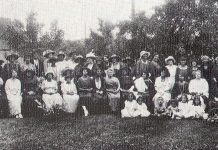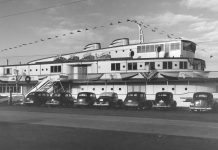July 15, 1865, dawned over Leavenworth, Kansas, a year of promise and peril as the Civil War finally drew to a close. Into this tumultuous world came Nettie Craig Asberry, the sole free-born child of Violet Craig, whose own life had been shaped by bondage and resilience.
By the age of eight, her fingertips had mastered the piano keys, and by thirteen, she was drafting letters in support of suffrage, inspired by Susan B. Anthony’s call for justice. Nettie Asberry’s journey would carry her from prairie classrooms to Tacoma’s halls of power, where, as a founding member of the first NAACP chapter west of the Rockies, she would confront segregation and rewrite the rules of inclusion in America.
Born Free in a Post-Civil War World
Nettie Craig’s childhood unfolded against the backdrop of Reconstruction-era Kansas. She was the youngest of six children born to Violet Craig, a formerly enslaved woman, and William Wallingford, the plantation owner who had held her mother in bondage. Upon emancipation, Violet cast off the Wallingford name and adopted the surname “Craig” for herself and her children, likely in homage to the plantation of her own birth in 1828.

Evidence of young Nettie’s brilliance manifested early. By the tender age of eight, her fingers were already dancing across piano keys, quickly mastering the instrument and even composing her own melodies, showcasing a rare and profound musical gift. Still, her intellectual curiosity extended beyond the musical realm, and at thirteen her world truly expanded when Susan B. Anthony, visiting her abolitionist brother, Leavenworth Timeseditor Daniel R. Anthony, electrified the city with a suffrage speech. Enthralled by Anthony’s clarion call for equality, Nettie became secretary of an adult local Susan B. Anthony Club, already demonstrating a precocious grasp of social justice and a burgeoning commitment to women’s rights. It was here that she first understood the power of organized resistance.
This early dedication paved the way for an extraordinary academic path. Taking advantage of free tuition policies of the time, Nettie first earned her undergraduate degree from the University of Kansas before setting her sights on advanced studies and making history. On June 12, 1883—just one month shy of her eighteenth birthday—Nettie graduated from the Kansas Conservatory of Music and Elocution, having been granted a “Teacher of Music” degree. Historical records suggest this achievement likely made her the first African American woman in the United States to earn a doctoral degree. Armed with this groundbreaking education and unwavering spirit, Nettie began her career teaching music in the all-Black town of Nicodemus, Kansas, and later in bustling cities like Kansas City and Denver, carrying her talents and her convictions wherever she went.

A New Life in the Pacific Northwest
The 1890s brought both heartbreak and renewal. Seeking opportunity in Seattle’s post-1889 Great Fire rebuilding boom, Nettie found herself on a westbound train with her first husband, Albert Jones, in 1890. Her musical prowess quickly found a home, as she became the first organist and musical director at the newly established First African Methodist Episcopal Church. However, tragedy struck in 1893 with Albert’s untimely death, prompting Nettie to briefly return to Kansas before settling in Tacoma, Washington, later that same year.
Shortly thereafter, in early 1895, Nettie met and married Henry Joseph Asberry, himself a remarkable figure who had risen from being a barber at New Orleans’s St. Charles Hotel to operating the prestigious Gottleib Yaeger’s barbershop in Tacoma’s new Tacoma Hotel. Henry’s clientele list read like a “who’s who” of influential figures, including Henry Hewitt, co-founder with Griggs of the lumber company; William Blackwell, proprietor of the first hotel in Tacoma; real estate magnate R. E. Anderson; S. A. Perkins, Superior Court judge; and many others.
Their home at 1219 South 13th Street would become a cornerstone of the community for over five decades. Nettie continued her profound musical contributions in Tacoma, becoming the organist and choir director for the African Methodist Episcopal (AME) Church, a role she held as a lifelong member. Recognizing the power of music to uplift and educate, she founded the Mozart Musical Club in 1902, dedicated to enriching the musical knowledge and cultural appreciation of young people. From her home, she taught hundreds of students of all backgrounds, regardless of their ethnicity, ensuring that the era’s pervasive inequalities did not limit access to musical education. She played the piano daily, a constant melody of dedication echoing through her home and community.

The Power of the Clubwoman
Believing that collective effort could amplify individual gifts, Nettie Craig Asberry immersed herself in the early 20th-century women’s club movement. When news arrived in 1908 that Seattle would host the Alaska-Yukon-Pacific Exposition in 1909, complete with a dedicated women’s building, she sprang into action by forming the Clover Leaf Art Club. Through shared lessons in needlework and handicraft, members refined their stitching and weaving skills while forming a tight-knit network of mutual support. This blend of artistic excellence and community care set the stage for the future Washington State Federation of Colored Women’s Clubs. During the following year’s exposition, the club’s needlework triumphed, earning several medals and prestigious accolades.
This success was more than just a triumph of artistry; it ignited the African American women’s club movement across Washington State. Nettie tirelessly traveled the state, inspiring and encouraging Black women to form their own clubs, recognizing these groups as vital platforms for self-help activism and community empowerment. Her efforts culminated in 1917 with the formation of the Washington State Federation of Colored Women. This influential organization united city federations and individual clubs from across Washington, Idaho, and even Vancouver, B.C..
As its president and historian, Nettie led a federation that, at its peak, boasted over 120 individual clubs and 500 members, all dedicated to improving the social, economic, and political status of African Americans. Beyond this monumental work, Nettie’s commitment to community welfare extended to forming the Allen Red Cross in 1918, where friends loaned sewing machines to produce hospital garments, and her active membership in the Progressive Mothers’ Club of Tacoma and the Tacoma Inter-Racial Council.

Nettie Asberry’s Relentless Crusade for Civil Rights
Fiercely attuned to every shade of injustice, Asberry made it her mission to inundate newspapers with letters condemning segregation and discrimination. In 1913, she channeled that same tenacity into founding the Tacoma branch of the NAACP, the first chapter west of the Rockies, personally sealing and sending the application to the national office in New York.
The Tacoma NAACP’s very first official act under her leadership was a resounding success: having learned of a proposed bill to ban interracial marriage, she mobilized a multiracial delegation to confront the state legislature, successfully defeating the discriminatory measure. In the ensuing decades, she waged battles on multiple fronts, fighting against the screening of “The Birth of a Nation,” challenging segregation in Tacoma’s theaters and restaurants, and laying the groundwork for the civil rights victories of the 1950s and ’60s. She would also wear every hat the organization offered, from regional field secretary to indefatigable local branch secretary. Her leadership became so storied that in 1943, Crisis magazine honored her among the “First Ladies” of colored America and devoted an entire feature to her lifelong record of service.

Honoring the Legacy of Nettie Craig Asberry in Tacoma
Nettie Craig Asberry passed away on November 17, 1968, at the remarkable age of 103, having lived a century that witnessed immense societal shifts and to which she contributed immeasurably. Her profound impact was recognized in 1961 when she was honored by 110 co-workers in the City Association of Colored Women for her contributions to music and her tireless volunteer social work. Her name is carried forward by the Nettie Asberry Cultural Club, formed by the Tacoma City Association of Colored Women’s Clubs (Tacoma CWC) to promote Black history, as well as the music room in the Tacoma CWC clubhouse, dedicated by Governor Dan Evans in 1970, bears her name as a lasting memorial.
A year after her death, Mayor Gordon Johnston declared May 11, 1969, Dr. Nettie Asberry Day, ensuring her name lived on in Tacoma’s collective memory. Tacoma deepened its homage in 2016 with the installation of a historical marker on North 30th Street. On January 4, 2022, the City Council granted landmark status to the Henry J. and Nettie Craig Asberry House, a lasting tribute to a woman whose resilience became Tacoma’s enduring voice for inclusion.




































